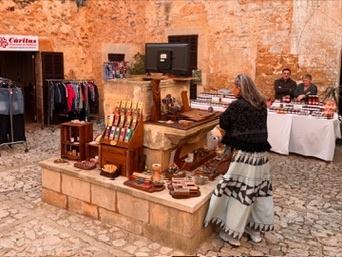Are there specific festivals or events where using the local language names is especially appreciated by Mallorcans?
Similar Topics
mallorcan festivals
catalan language
local place names
feast of sant
festa de l'estendard
festa des vermar
mallorquí language
cultural respect mallorca
Mallorcans generally take great pride in their Catalan heritage, and this is especially evident during local festivals and cultural events where the use of the Catalan language, including local place names, is highly appreciated. Mallorca, as part of the Balearic Islands, has a strong regional identity tied to its language, known locally as Mallorquí, a variety of Catalan. During traditional celebrations, such as the Feast of Sant Joan, the patron saint of Palma, or the vibrant Festa de l'Estendard in the island’s capital, using the original Catalan names rather than their Spanish equivalents shows respect for the local culture and history and often fosters a warmer reception among residents.
Another significant event where local language is embraced is during the various town-specific fairs or sagras, such as the Festa des Vermar in Binissalem, a wine harvest festival. Participants and visitors who use the Mallorquí names for places, foods, and traditional customs signal not only linguistic awareness but also a genuine interest in the island’s unique traditions. Sporting events, folk dances, and religious celebrations can also be more meaningful for locals when visitors make the effort to pronounce and use the terms they themselves use every day. This attentiveness reflects a deeper appreciation beyond mere tourism, helping to build connections with Mallorcans.
Even beyond festivals, everyday interactions in markets, small villages, and family-run establishments benefit from visitors using the local language names. While Spanish is commonly understood, the use of Catalan signals cultural sensitivity and often invites more open and friendly exchanges. In summary, while it is not mandatory, carefully using the Mallorquí names during major festivals and community events underscores respect for Mallorca’s identity, making the experience more enriching for both visitors and locals alike.
Another significant event where local language is embraced is during the various town-specific fairs or sagras, such as the Festa des Vermar in Binissalem, a wine harvest festival. Participants and visitors who use the Mallorquí names for places, foods, and traditional customs signal not only linguistic awareness but also a genuine interest in the island’s unique traditions. Sporting events, folk dances, and religious celebrations can also be more meaningful for locals when visitors make the effort to pronounce and use the terms they themselves use every day. This attentiveness reflects a deeper appreciation beyond mere tourism, helping to build connections with Mallorcans.
Even beyond festivals, everyday interactions in markets, small villages, and family-run establishments benefit from visitors using the local language names. While Spanish is commonly understood, the use of Catalan signals cultural sensitivity and often invites more open and friendly exchanges. In summary, while it is not mandatory, carefully using the Mallorquí names during major festivals and community events underscores respect for Mallorca’s identity, making the experience more enriching for both visitors and locals alike.
🧩 Related Questions
Related Question
How has the growth of tourism since the mid-20th century affected the population diversity and economy of Mallorca?
Related Question
In what ways does the Mediterranean climate of Mallorca impact mulberry fruit quality?
Related Question
In what ways do Mallorca’s hot summers challenge the maintenance of healthy trees?
